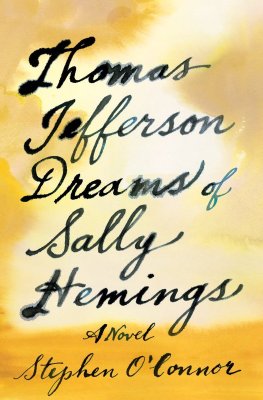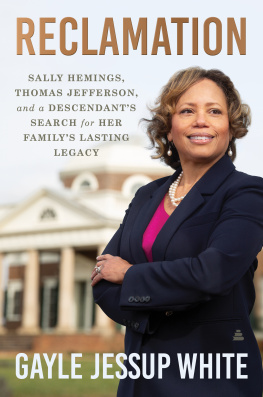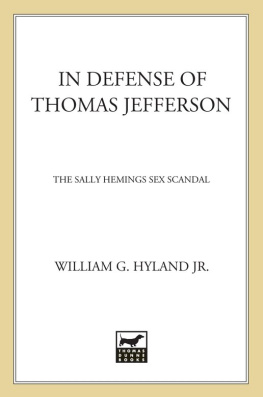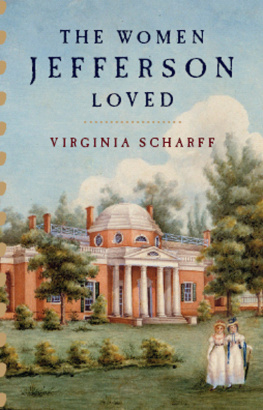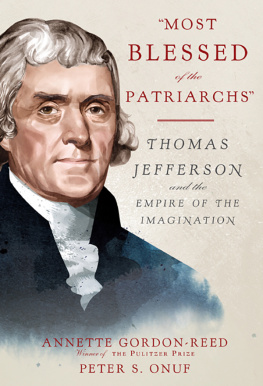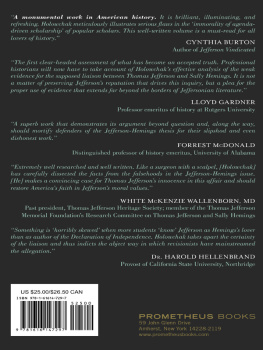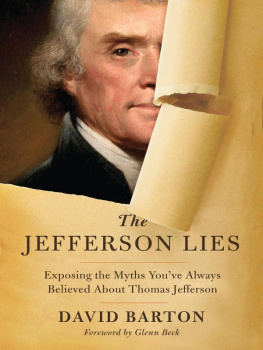
In , I mention the 2001 Report of the Scholars Commission on the Jefferson-Hemings matter and the subsequent book, The Jefferson-Hemings Controversy: Report of the Scholars Commission. The commissioncomprising thirteen prominent, independent, and unpaid scholarswas put together at the bidding of the Thomas Jefferson Heritage Society, just after the puzzleheaded report of the Thomas Jefferson Memorial Foundation (TJMF) was released. Its aim was to review all the available evidence concerning the avowed paternity of Thomas Jefferson in a disinterested manner. The scholars who participated were Lance Banning (History, University of Kentucky), James Ceasar (Government and Foreign Affairs, University of Virginia), Robert Ferrell (History, Indiana University), Charles Kesler (Government, Claremont McKenna College), Alf Mapp Jr. (History, Old Dominion University), Harvey Mansfield (Government, Harvard University), David Mayer (Law and History, Capital University), Forrest McDonald (History, University of Alabama), Paul Rahe (Western Heritage, Hillsdale College), Thomas Traut (Biochemistry and Biophysics, University of North Carolina), Robert Turner (Law, University of Virginia), Walter Williams (Economics, George Mason University), and Jean Yarbrough (Government, Bowdoin College).
The scholars individually approached the evidence, though there were extensive communications by e-mail, letter, and telephone.
- Sally Hemings was a minor figure in Jefferson's life;
- The 1998 DNA study apropos of paternity of Hemings's children is misleading;
- Problems with Madison Hemings's 1873 account make his statement that Jefferson is his father questionable;
- Fraser Neiman's Monte-Carlo argument is unimpressive;
- Sally Hemings and her children received treatment no more special than other members of Sally's mother's family and treatment less favorable than certain other slaves;
- The resemblance of some of Hemings's children to Jefferson is explicable by Thomas's brother Randolph or any of Randolph's sons being the father;
- James Callender's 1802 accusations are highly unpersuasive;
- The oral history concerning Jefferson's paternity is unreliable; and
- Randolph Jefferson is a more likely candidate for paternity of Eston Hemings than Thomas Jefferson.
They guardedly summarize their research:
In the end, after roughly one year of examining the issues, we find the question of whether Thomas Jefferson fathered one or more children by his slave Sally Hemings to be one about which honorable people can and do disagree. However, it is our unanimous view that the allegation is by no means proven; and we find it regrettable that public confusion about the 1998 DNA testing and other evidence has misled many people into believing that the issue is closed. With the exception of one member, whose views are set forth both below and in the more detailed appended dissent, our individual conclusions range from serious skepticism about the charge to a conviction that it is almost certainly untrue.
Readers familiar with this heated issue might be taken aback that I have said little of the 2001 Report of the Scholars Commission, while much that I say in Framing a Legend is in the spirit of their findings. The reasons are chiefly three.
First, I did not read the scholars report when I wrote this book, though I knew of it and had access to the findings through the webpage of the Thomas Jefferson Historical Society. The reason is, as my title implies, that much of the focus of the book is a critical examination of revisionist history and, to a lesser extent, the perverse science that presumably indicts Jefferson. Thus, my chief aim is not to show that Jefferson did not father children by Hemings. Addressing the question of Jefferson's involvement with Hemings is an aim, though a secondary aim. My chief aim is to show that the arguments of prominent scholars and scientists are prodigiously flawed. Thus, the question redounds, Why have so many scholars been seduced by the leading literature of the day, given its substantial flaws?
Second, the Report of the Scholars Commission is an appeal to authorities on the issue of paternity, and, as the TJMF's 2000 report shows, appeals to authorities are far from foolproof. I illustrate with a sketch of a form of the argument from authority.
Person p maintains claim c is true.
Person p is an expert on issues related to claim c.
So claim c is true.
Here we might reasonably object that it is not enough for Person p to assert the truth of claim c. There must be consensus among authorities, for too much is on the line. And so we ask for a stronger inductive argument.
Person p maintains claim c is true.
Person p is an expert on issues related to claim c.
There is consensus among authorities on issues related to claim c that claim c is true.
So claim c is true.
Insofar as authorities are concerned, it seems there is little else beyond consensus for which we can rationally ask. After all, the argument from authority is an inductive argument and inductive arguments are never watertight.
Here we might still reasonably object that trust in consensus among authoritieslike the authors of the 1998 DNA study, the author of the 2000 TJMF report, and the majority of historians acquainted with Jefferson and Hemingsis what got us into this sad, gordian state of affairs in the first place. The experts have made a pig's ear of Jefferson's life, and his legacy is up in the air. Thus, we acknowledge a general consensus among historians on the issue of Jefferson's paternity, but, appealing to the evidence that historians have mulled over in arriving at the consensus, we are perplexed that such a consensus exists.
And now the Report of the Scholars Commission in 2001 arrives at a conclusion opposite that of the report of the TJMF in 2000. How do two groups of scholars, working independently of each other and with access to the same data, arrive at inconsistent conclusions? Many readers, I suspect, will take the inconsistency as evidence that the authorities are massively confused and, given that, decide that the testimony of experts here is unreliable. There can be no trust in authorities. In that regard, appeal to the Scholars Commission on the issue of paternity by me would have done little to settle the issue in the minds of readers other than to show that one group of experts believes x and another believes ~x.
Yet the issue is not insoluble and members of the Scholars Commission are not confused. We have merely assumed something too obvious to need stating: that the consensus among authorities in the argument from authority ought to be based on a disinterested, thorough, and exhaustive examination of all available, relevant evidence. Not all groups of scholars are disinterested, thorough, and exhaustive, and many, as I have shown in , nowise think history is in any sense an etiological discipline. They prefer to deconstruct writings, instead of analyzing them. Thus, we need to flesh out the argument from authority by adding another premise that blocks deconstruction.
Person p maintains claim c is true.
Person p is an expert on issues related to claim c.
There is consensus among authorities on issues related to claim c that claim c is true.
The consensus among authorities is based on a disinterested, thorough, and exhaustive scientific examination of all available, relevant evidence.
So claim c is true.
In sum, it seems that the TJMF failed (as I elaborate upon in ) and the Scholars Commission succeeded in that only the latter arrived at consensus through disinterested, thorough, and exhaustive scientific examination of all available, relevant evidence.
Next page


